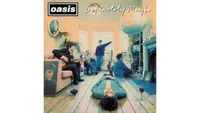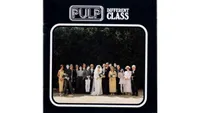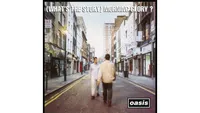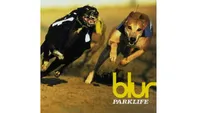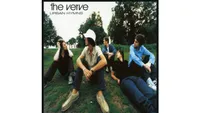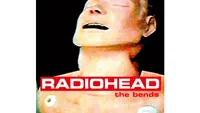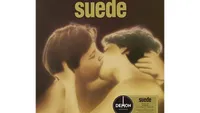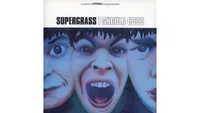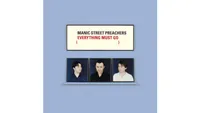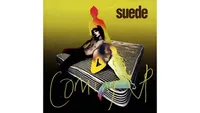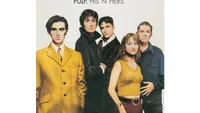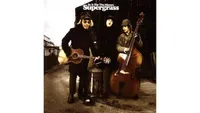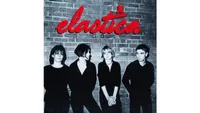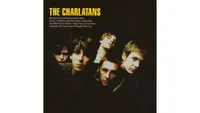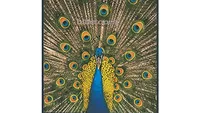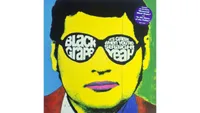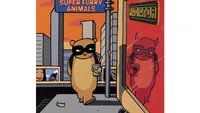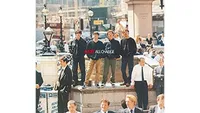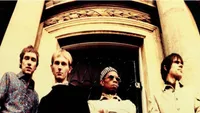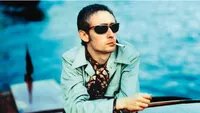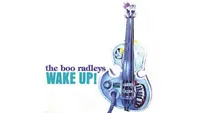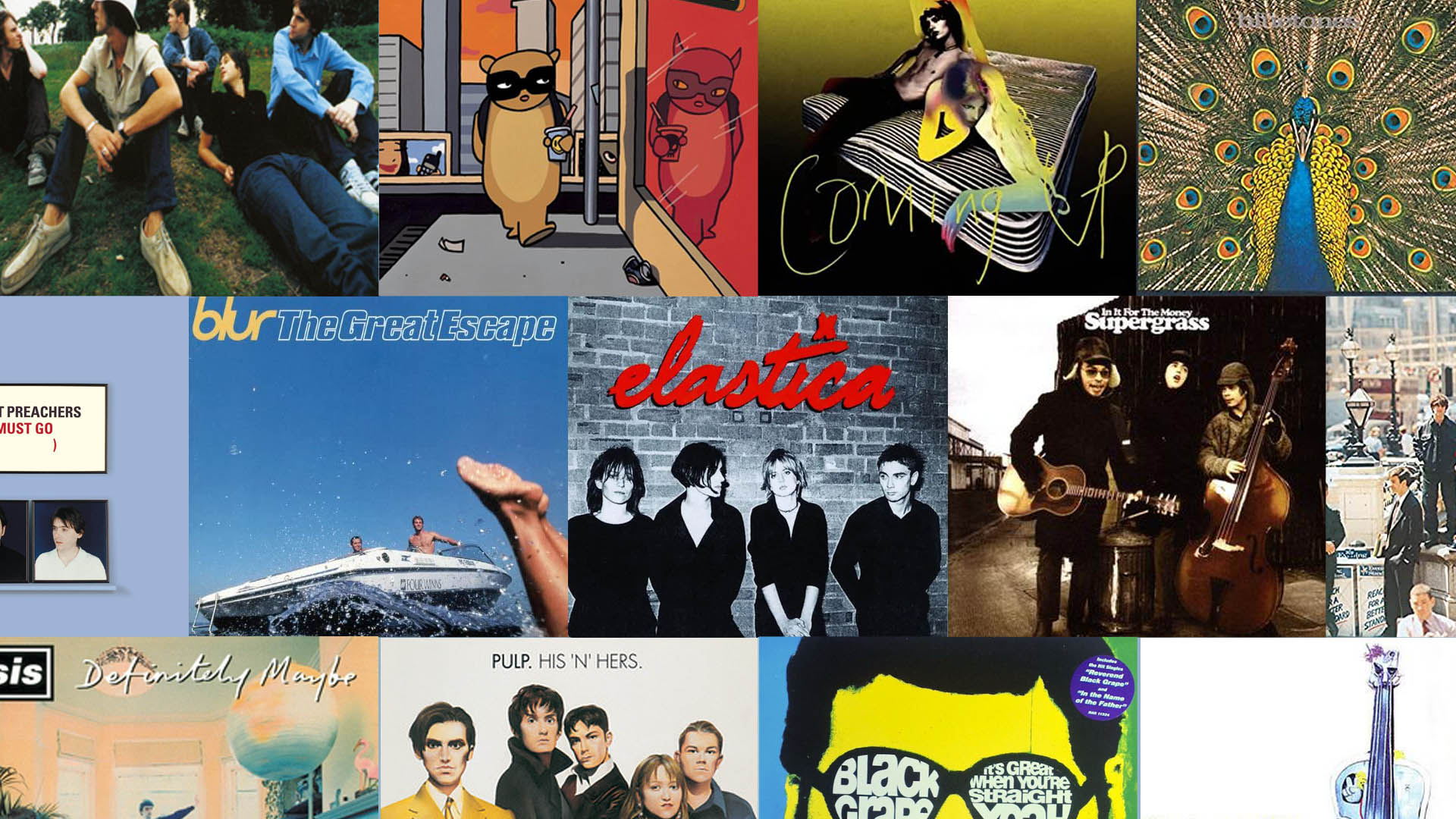
Get exclusive shortlists, celebrity interviews and the best deals on the products you care about, straight to your inbox.
You are now subscribed
Your newsletter sign-up was successful
Your quintessential Britpop album was released in the mid ’90s, by a British band with a guitar-led ‘indie’ or ‘alternative’ sound, and which received a lot of UK radio airplay at that time.
In putting a list of the best Britpop albums together, we’ve had to set a whole heap of arbitrary conditions.
For example, these albums may not necessarily be the best efforts from each band, even during the narrow Britpop period (hence no OK Computer from Radiohead).
- Vote for what you think are the best Oasis songs of all time.
But we reckon they were the best representation of the Britpop scene at the time.
There were plenty of outliers that might not have ticked all of those boxes outlined above, but that proved influential to the scene as a whole. We’ve included a few of those on the following list too.
And with the news that Oasis are reforming for their Live '25 Tour, it feels like there are going to be a lot of people looking to delve into the Britpop era and trying to recapture this magic. Hopefully this guide will help!
Don’t forget to vote for your top Britpop pics below.
Get exclusive shortlists, celebrity interviews and the best deals on the products you care about, straight to your inbox.
Best britpop albums
It sounds crazy to say a band as big and successful as Oasis peaked with its debut album, but then most debut albums haven’t had the seismic effect of Definitely Maybe. Oasis were the 300lb gorilla of the Britpop period, bursting out of their provincial indie scene to conquer the world.With walloping great Led Zeppelin guitars, at least one half-inched T-Rex riff, a little Sex Pistols snark, and of course those Beatles melodies, Definitely Maybe is a real grab bag of ’60s and ’70s influences. But boy, do those elements coalesce into a thrilling whole.
Pulp had been plugging away to little effect since their formation in 1978, a whole generation before the Britpop era. They finally arrived – with a due nod to the previous year’s wonderful His ‘n’ Hers – with Different Class.Perhaps unsurprisingly, the album felt quite different from its contemporaries. Brighter, funnier, wiser, and more engaged with social issues. It also contained the immortal Britpop banger, Common People, with its epic true-life tale of class tourism.
Definitely Maybe was an astounding mission statement of a debut, with a run of songs more cohesive than anything Oasis would subsequently release. But (What’s the Story) Morning Glory? was where Oasis broke out the hits and aimed for the stars.The sing along classics just keep coming: Wonderwall, Champagne Supernova, Don’t Look Back in Anger, Some Might Say. If you were going to send an album into battle on behalf of Britpop, it would be difficult to look past this 22-million-selling behemoth.
One of the most beloved albums in Blur’s long and distinguished career, Parklife arrived just as Britain was starting to work itself up into a Britpop frenzy. In tracks like Girls & Boys and Parklife, frontman Damon Albarn created an unstoppable salvo of cheeky, knowing, observational pop anthems.With To The End and This Is a Low, however, Albarn revealed a canny knack for something a little more adventurous and downright pretty – a knack he would continue to show in all of his subsequent projects, both within and without Blur.
The Verve had been scratching around the indie backwaters for eight years before Urban Hymns, their third and most successful album, rolled around. It arrived just in time to help see out the Britpop era on a tide of epic strings and forlornly bombastic ballads.Think of The Verve around this time and you’ll probably picture a grumpy young man bowling past people on a busy high street, which stems from the video to the album’s signature song, Bittersweet Symphony. The rest of the album mixed similar orchestral lushness with the neo-psychedelia that had typified their earlier work.
The Bends was a popular guitar-driven album from a British band released at the height of Britpop in 1995, yet we’re extremely reluctant to add it to this list. Not because the album isn’t any good, but because Radiohead were so resolutely outside of the whole Britpop bubble, and because the reference points were all from the other side of the Atlantic.As a pure work of sensitive alternative rock, The Bends proved so seminal that Radiohead would spend the next several albums ripping up the rock playbook by way of a defiant response.
You can think of Suede – both band and album – as having a catalysing effect on the whole Britpop phenomenon. With their 1993 debut they beat a path from indie hopefuls to genuine chart-troublers for most of the other albums on this list to follow.As is the way with catalysts, though, they weren’t really a part of the chemical reaction that they kicked off. Suede (the album) has none of the jauntiness or optimism of subsequent Britpop touchstones, choosing instead to wallow in majestic squalor and glam riffs. It’s aged all the better for it.
For evidence Britpop fever spread well beyond British shores, consider the fact that Steven Spielberg once approached Supergrass with an offer to turn them into a ’90s version of The Monkees. You can see why if you watch the video from I Should Coco’s second single, Alright, which would prove to be a defining Britpop anthem.The rest of the album contained its fair share of cheeky chappy pop moments, but also displayed a core of hard rock and punk influences that would be further explored in subsequent releases.
Everything Must Go is a remarkable comeback story for a band that was rocked to its core by the disappearance of lyricist and occasional guitar player Richie Edwards the previous year. It’s a triumph that the newly diminished band put out anything at all, let alone arguably its best album ever.In Design for Life, the Manics had made a defining anthem for themselves, and arguably for the times as well. The jagged Kevin Carter, the thrilling title track, and the soaring Australia all took the band to a level of mainstream acceptance few thought possible.
The Great Escape may not be Blur’s greatest album (that’s a discussion for another list), but it does represent the band in their Britpop pomp. This is the album that contains the single Country House, which formed one side of the infamous Britpop chart battle with Oasis. A battle that Blur would win, don’t forget.While the album contains its fair share of knees-up mockney sing-alongs (Charmless Man, Stereotypes, Country House), it also features one of Blur’s loveliest tracks in the swooningly orchestral The Universal.
Suede unwittingly kickstarted the whole Britpop thing with its self-titled album, then followed up with the dense and ambitious Dog Man Star. However, it arguably wasn’t until the band’s third album, Coming Up, that it embraced – and was embraced by – the whole Britpop scene.Shorn of guitar genius Bernard Butler, the band leaned into a decidedly poppier, glitzier sound, and thrashed out an album packed with radio-friendly hits. Trash, Beautiful Ones, Lazy, and Filmstar were each certified bangers, with at least one guaranteed to be played at every subsequent Britpop night.
Different Class might have been the album that sent Pulp into the elite league of Britpop, but it was His ‘n’ Hers that forced the door open. It served to introduce a whole new generation to the slinky, sordid, yet deceptively catchy songs of lead singer Jarvis Cocker. Tracks like Do You Remember the First Time? and Babies practically throbbed with desperate yearning, and took a permanent place on the band’s set-lists.It also introduced many to Cocker himself, arriving here in his final form as the greatest and most distinctive frontman that the Britpop era would produce.
With their second album, Supergrass successfully headed off any fears of being typecast for the cheeky chappy personas showcased on I Should Coco. They did so by adding darker, harder, and more melancholic inflections to their ’70s-drenched pop-rock sound.There’s real range to the song-craft here. Hard-rocking single Richard III sounds borderline threatening, while at the other end of the spectrum, Late in the Day is one of the most gorgeous songs anyone released in 1997. Sun Hits the Sky, meanwhile, showed they were still capable of running green and keeping their teeth nice and clean.
Britpop may have been a shamefully blokey scene (just check out the number of all-male groups on this list), but perhaps the coolest band and album of the era came from the predominantly female Elastica. Indeed, with lead singer Justine Frischman’s links to both Suede and Blur, they were arguably the most Britpop band of them all.The band’s self-titled debut album exploded onto the scene in a squall of bratty post-punk energy and rolling baselines. In Connection, they produced a single that pretty much defines the boozy mid-’90s Camden scene that lies at Britpop’s heart.
The Charlatans almost seemed to fall between two stools with their early output, landing somewhere between late-’80s Madchester and peak Britpop-era rock and roll. It was on their 1995 self-titled album that they arguably first found their voice.This is an assured, optimistic effort, influenced as much by Beck and The Beastie Boys as it was by The Rolling Stones and country-tinged Americana. This is the album that put one of the most consistent and resilient bands of the Britpop era on the map.
It’s easy with hindsight to treat The Bluetones as a side-note in Britpop history, but for a brief period it looked like they might be major players. Debut album Expecting to Fly even knocked the mighty (What’s the Story) Morning Glory? off the number one album spot in the UK, if only for a week.Helped by a true Britpop anthem in second single Slight Return, with notable support from Bluetonic and Cut Some Rug, Expecting to Fly soared along on a jangly breeze, underpinned by a cheeky sense of humour.
Black Grape lead man Sean Ryder first found some success in the pre-Britpop days with Happy Mondays, but he’d get an unlikely second bite at the cherry with Black Grape. Debut album It’s Great When You’re Straight… Yeah stood out out a mile in the distinctly white and guitar-based Britpop scene.With elements of rap, dance, and funk pushed to the fore, tracks like Reverend Black Grape, In The Name Of The Father, and Kelly’s Heroes swung and bopped as much as they rocked and rolled.
Welsh band Super Furry Animals always stood apart from the Britpop tribe, and not just because they counted Cardiff as their home base rather than London. While some of the ’60s and ’70s pop and rock reference points were similar, SFA also stirred in a healthy dose of thumping techno and frazzled electronics.The band’s second album, Radiator, was the first to see them really display their freewheeling experimental edge, with vintage synths and Atari computers feeding into a distinctly ’90s brand of psychedelia. For all that, there’s a strong melodic heart to this brilliant album.
Cast were another of those Britpop also-rans, often forgotten as the hive memory coalesces around Oasis, Blur, and Pulp. At the time it looked a little different, however, with debut album All Change exploding onto the scene with a gaggle of brilliantly peppy Merseybeat singles.Finetime, Alright, and Sandstorm all showed off the impeccable songcraft of primary songwriter (and former member of proto-Britpop legends The La’s) John Power, while Walk Away was a sappy ballad seemingly precision engineered to soundtrack yet another England football tournament exit.
They may have been britpop underdogs, but Ocean Colour Scene's Moseley Shoals is filled with some all-timer tunes. The Riverboat Song? The Day We Caught the Train? Both feature unmistakeable guitar hooks and vocal lines that hold up as well as anything from this era. Moseley Shoals was the 11th best-selling album in the UK of 1996. The band still tours to this day, although its last original album was released back in 2013.
This may not be The Divine Comedy’s best album, even if it is a contender for that title, but this is where the band made its most significant flirtations with the britpop scene. The theme of sex runs through its run time, a very Britpop concern. It's most obvious in Something for the Weekend, which reached number 14 on the UK charts in 1996. You’ll also recognise Songs of Love, based on the Father Ted theme tune, also written by singer Neil Hannon.
If any song captured the optimistic mood of Britain in the mid-’90s it was Wake Up Boo! by The Boo Radleys. The accompanying album was similarly shot through with jaunty tunes, which was quite something from a Merseyside band that had hardly been renowned for a sunny disposition prior to that point.Together with singles Find the Answer Within and It’s Lulu, these were the kind of tracks that were regularly used in UK light entertainment TV shows and breakfast radio trailers for their ability to evoke a sense of joyousness. They were also as catchy as hell.
SOMETHING MISSING FROM OUR SHORTLIST?
Tell us about it, and if enough people agree we'll add it in.
Jon Mundy is a freelance writer with more than a dozen years of experience writing for leading tech websites such as TechRadar and Trusted Reviews.

